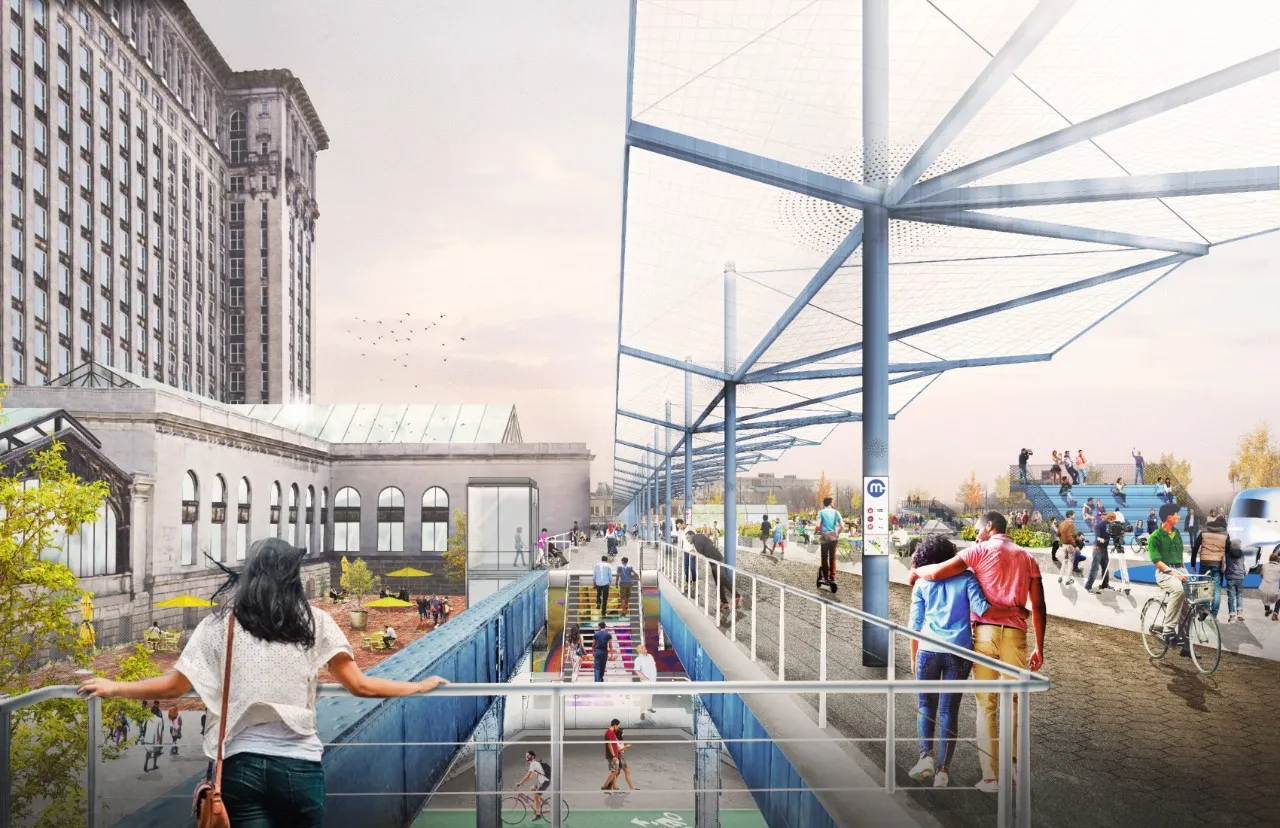
Ford Motor Company has revealed the site plan for Michigan Central, a walkable mobility district in the Corktown neighbourhood of Detroit.
According to Ford, the site plan meets Detroit's goal to develop areas full of open space and multimodal transit options within 20 minutes.
The automaker confirmed it is on track to restore the city's Michigan Central Station by the end of 2022.
In 2018, executive chairman Bill Ford announced plans to restore the train station, abandoned in 1988, as the centrepiece of an innovation hub to help define the way people move around.
Ford is to develop a mobility platform on elevated train tracks behind the station with new open spaces that connect site buildings.
It will allow Ford and its partners to test emerging technology such as autonomous vehicle and micromobility initiatives.
As part of the project, the district will serve as part of Michigan’s proposed connected and autonomous vehicle (C/AV) corridor running from Detroit to Dearborn to Ann Arbor, linking the district to a broader regional network of testing and research.
Boston landscape architect Mikyoung Kim Design and Detroit-based LivingLab will design the mobility platform and other open spaces around Michigan Central.
Mary Culler, Ford’s Detroit development director, says: “At Michigan Central, we are taking a collaborative approach to innovation, including providing flexible work spaces that attract and engage the best minds to solve complex transportation and related challenges as we shape the future of mobility together.”
The 30-acre site plan – developed by Practice for Architecture and Urbanism – is expected to prioritise the needs of residents and 5,000 employees in the area.
Adjacent to the station, the Book Depository is being revitalised to offer co-working areas and hands-on laboratories by architecture firm Gensler.
East of the station, Ford is to build a parking garage and mobility hub at 14th and Bagley that provides 1,250 parking spaces for Michigan Central workers.
Work on the Book Depository and the Bagley Parking Hub will begin in the first quarter of 2021 and are expected to open in early 2022.







